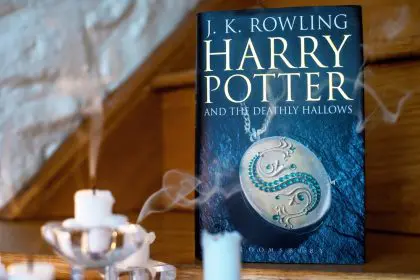
Julia Beverly played a major role in documenting Southern hip-hop’s rise in the early 2000s. As founder and editor of OZONE magazine, Beverly was there as so many Dirty South superstars made their names and when legendary UGK founder Chad “Pimp C” Butler died suddenly in 2007, Beverly felt like the rapper-producer who’d help shape the South’s sound and spirit deserved much more adulation than he ultimately received. And she decided to do something about it.
“[The book] was an idea I had because I felt like he had passed without the recognition he deserved,” Beverly tells rolling out. “A lot of people — myself included — didn’t really know his whole story and the background of UGK and why he was important. I came in later.”
Once Beverly got the idea, she met with C’s mother, Weslyn “Mama Wes” Monroe, and began work on the book that would become Sweet Jones: Pimp C’s Trill Life Story.
“We had met in passing before, but I didn’t really realize how involved she was with his career. She played a really huge role,” Beverly recalls. “She really was just telling me stories and was immediately on board with it. She could remember everything. She was a librarian by trade, originally. She could remember little details most people would’ve forgotten. For somebody writing a book, she was a great source and collaborator. I would go out there for four or five days at a time and literally sit in her kitchen and have her tell me stories.”
The book is a thorough examination of Pimp C’s life and career, documenting hard moments like the death of the legendary DJ Screw and Pimp’s incarceration, as well as his connections with so many Southern rappers.
“Everything prior to him going to prison was new to me as a fan; I didn’t realize how connected he was to everybody. From No Limit to Cash Money to Young Buck to Lil Boosie— it was interesting to hear how all these artists had a [connection]. I didn’t realize how connected he was directly to a lot of people. It made you realize just how influential he really was. At one point, I was going to call it The Six Degrees of Pimp C!
She wants readers to learn from Pimp’s life and legacy–and his mistakes.
“Pimp went through a lot. He had a lot of drama in his life and in things he went through. He definitely made some mistakes but the overwhelming sense I came away from it with was a lot of people did him wrong. There were a lot of situations where people took advantage of him.
“It’s been said over and over again, but when you are trying to get into the music business, it’s important to understand what’s happened to people before you so that you can figure out how to navigate it for yourself. A successful group like UGK has never recouped. They currently owe Jive $4 million. If a successful group can’t recoup, what do you think happens to you as an aspiring rapper? Most of your money is going to come from shows, side production and features–[that’s what] UGK did. Understand the business side of things. And from his unfortunate passing, although there was debate over what led to his death, I think if he had been more comfortable about the people he let around him, that definitely played a role in some of the negative things.”
For Beverly, the book was both an examination of a conflicted man’s life and a celebration of the bond he shared with his mother. Upon Mama Wes’s death in 2013, Beverly became even more adamant about getting this story to the public.
“We had just finished her last interview,” says Beverly, remembering her last interactions with Monroe. “We’d been doing interviews for several years and I had a list of follow-up questions for our original interviews. I went out to Texas and wound up staying a lot longer than I’d originally planned because of circumstances. During that time, we basically finished everything. We went through and scanned old pictures and finished interviews. I left and said I’d come back and we’d go over it. But the next time I saw her, she was in the hospital. It was really sudden. I got on the next flight that I could get on. By the time I got there, she was already sedated. She passed within 48 hours.
“That whole process of just being there with the family during her last moments was an emotional process. I kind of felt like I was walking a line—when you’re a journalist, you want to be objective and not get too emotionally involved with your subjects. But that was a moment where I was walking the line between being a journalist and being someone who was losing someone personally.
“After that, I had to finish the book. With her passing and, based on our last conversation, I know that the book coming out and her son’s story being told was part of her dying wish. This was something she wanted to see done.”











